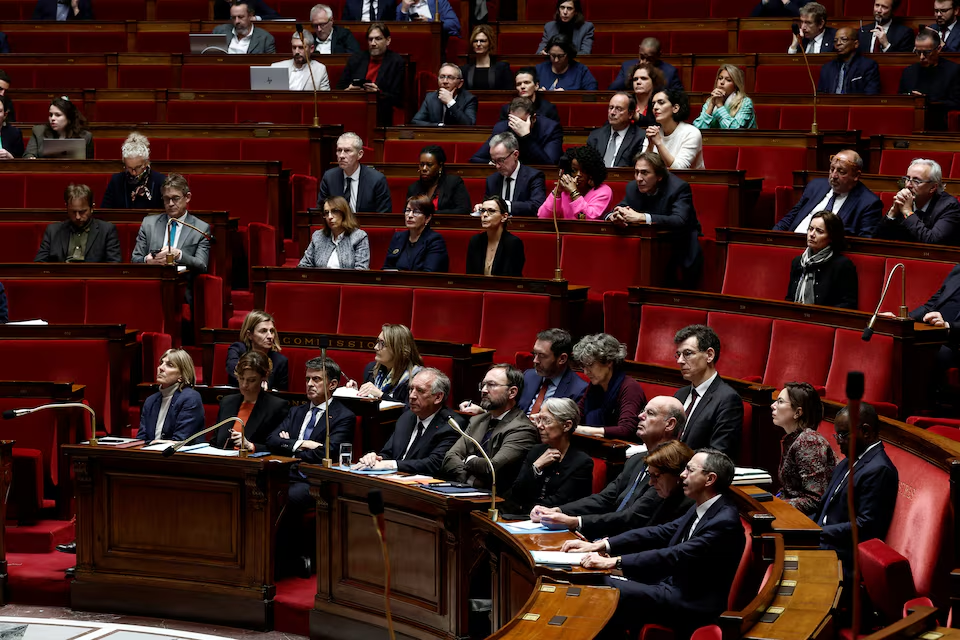
French PM Bayrou Survives No-Confidence Vote
French PM Bayrou Survives No-Confidence Vote
French Prime Minister Francois Bayrou successfully navigated the initial challenge of his new minority government on Thursday, as he managed to avoid a no-confidence vote initiated by the hard left after the center-left Socialist Party abstained from supporting the motion.
The far-right National Rally (RN), led by Marine Le Pen, had already indicated that it would not back the challenge.
As a result, President Emmanuel Macron’s government can continue without being entirely dependent on the support of the far-rights.
However, Bayrou’s administration remains fragile and still faces significant challenges in passing the 2025 budget, which was a key factor in removing his predecessor, Michel Barnier.
On Thursday, 131 lawmakers supported the no-confidence motion, falling well below the required 288 votes. “The necessary majority has not been achieved; hence, the motion has been rejected,” stated National Assembly President Yael Braun-Pivet. The Socialists’ stance had been uncertain.
Keep reading
- WHO Appeals for $1.5 Billion for Emergencies Amid Uncertainty Over US Funding
- Trump Set to Ease LNG Export Permit Renewals, Sources Reveal
- Israeli Cabinet Delays Approval of Gaza Ceasefire Deal as Strikes Kill 77
- Gold Hits Over One-Month High as US Data Weakens Yields
Bayrou has attempted to gain their support to avoid relying on the RN, even proposing renegotiating a 2023 pension reform that the left opposes.
“We will not censure you (today),” Socialist Party leader Olivier Faure informed Bayrou at the start of the National Assembly debate.
Before this, Faure had expressed that Bayrou’s commitment to revisiting pension reform was insufficient, stating that his party would support the no-confidence vote unless their demands received a clear response.
To win the Socialists over, Bayrou outlined further concessions in a letter, including eliminating a reduction in state medical reimbursements, increasing hospital funding beyond previous allocations, and retracting plans to cut 4,000 teaching positions.
Additionally, Bayrou consented to uphold concessions that his predecessor Barnier had already established, such as delaying an electricity tax increase and adjusting all pensions according to inflation for 3.6 billion euros ($3.7 billion).
Source: Reuters




1 thought on “French PM Bayrou Survives No-Confidence Vote”